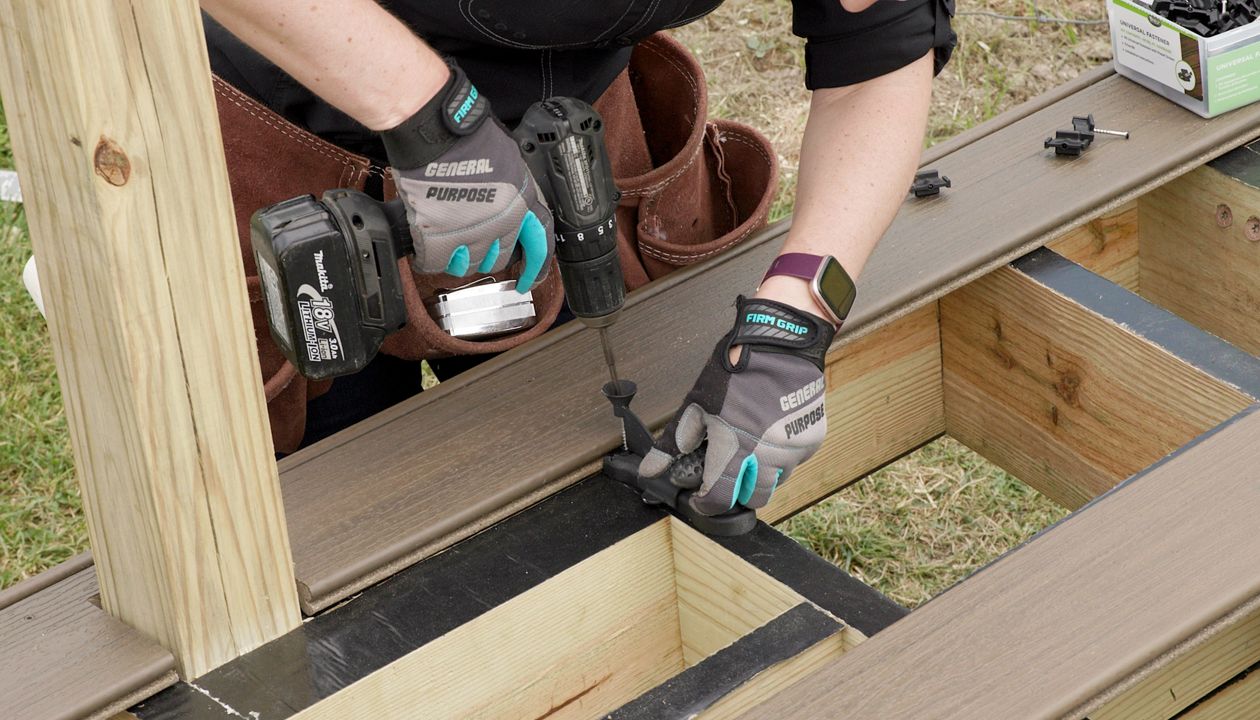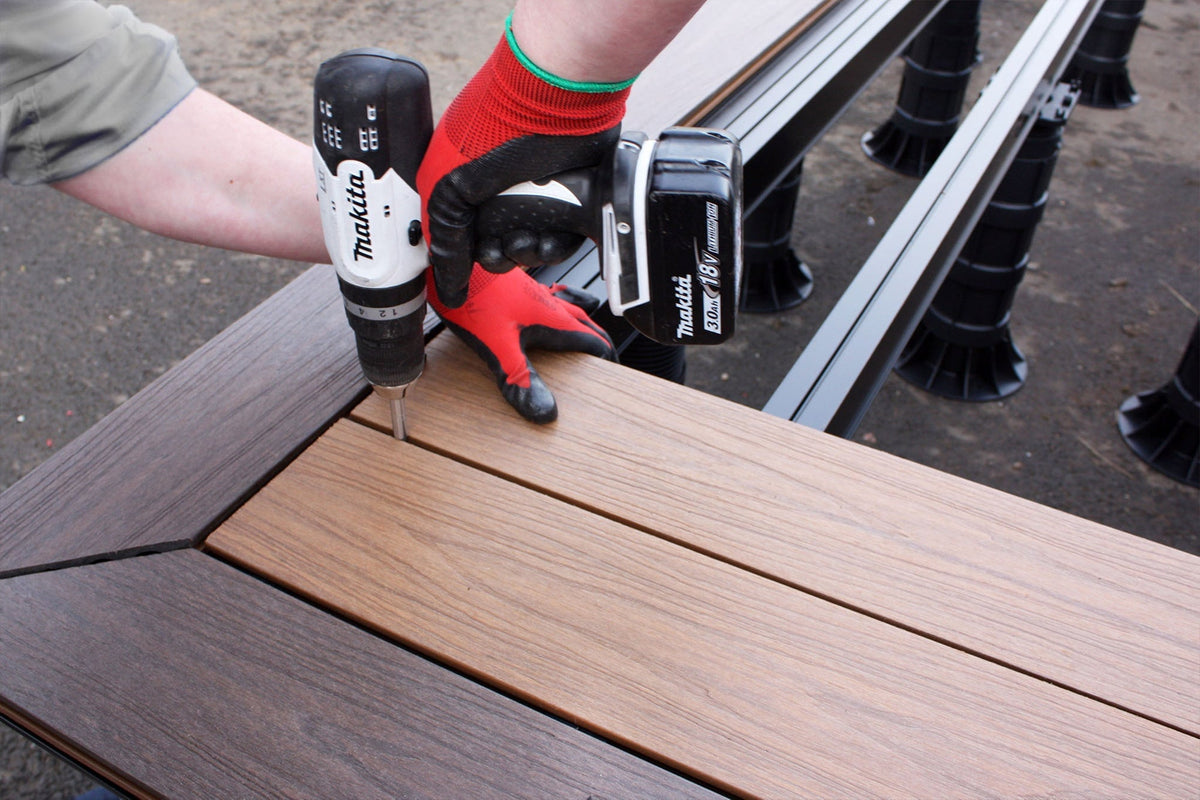Planning your outdoor upgrade? Start by hiring the right team for deck installation Austin TX.
How to Pick the Right Products for Your Deck Setup Task
Selecting the appropriate materials for your deck setup job can appear complicated. There are countless variables to consider, from sturdiness and upkeep to aesthetic appeals and ecological influence. The option between conventional wood and composite products, each with its own set of advantages and drawbacks, can be specifically challenging. The key is to balance your budget plan, style preferences, and way of living requires to develop a deck that will enhance your outside area for several years to find.
Comprehending the Different Sorts Of Deck Products
When getting started on a deck setup project, the selection of materials becomes a pivotal decision. Compound materials, on the other hand, are a blend of wood and plastic, supplying durability and resistance to weather aspects. By recognizing these differences, homeowners can make an extra educated decision on the most ideal deck product for their particular demands.
Evaluating the Durability and Upkeep Requirements of Deck Materials
Evaluating the longevity and maintenance demands of deck materials is an important action in deck setup. Longevity entails the material's capacity to withstand rough climate conditions, wear and tear, and its durability.
Recognizing maintenance demands is just as vital. Some products need normal sealing or tarnishing to keep their appearance and resist wetness damage, while others, like composite outdoor decking, require much less maintenance. By evaluating these elements, one can pick the most ideal outdoor decking material, making certain a balance in between longevity, maintenance requirements, and visual appeal.
Price Analysis: Comparing Timber and Compound Decking
Although price might at first appear like an additional issue, it is a substantial variable when comparing wood and composite outdoor decking. On the other hand, composite outdoor decking, while pricier at first, requires much less maintenance, possibly lowering long-lasting costs. Potential deck proprietors must consider their budget and readiness to preserve their decks when choosing between wood and composite outdoor decking.
Appearances and Design Adaptability of Decking Materials
While price is an essential factor to consider, the visual appeal and style adaptability of outdoor decking materials additionally play a substantial function in the decision-making process. Various materials use differing levels of visual appeal. For circumstances, all-natural wood decking gives a traditional, timeless look, while composite materials provide a vast array of colors and textures to match varied tastes and designs. Similarly, style versatility describes the ability to form and control the outdoor decking product to satisfy certain layout requirements. Wood, for example, provides high design versatility because of its convenience of cutting and shaping. Compound materials, while less flexible in style, are still adaptable enough for the majority of deck designs. These variables, consequently, are important components in the selection of decking product.
Environmental Effect of Decking Materials
When picking decking materials, one have to think about not only visual appeals and resilience, yet additionally the environmental effect. It's vital to assess the sustainability of products and check out recycled decking alternatives. Recognizing the possible influence on regional environments will make certain a much more environmentally accountable option.
Assessing Material Sustainability
In the realm of deck construction, analyzing product sustainability is an essential step. This includes reviewing the environmental influence of each possible product, thinking about elements such as the power required for its production, its carbon footprint, and its end-of-life disposal or recycling alternatives. Timber is a sustainable source, but unsustainable logging techniques can lead to official site deforestation. Composite outdoor decking materials commonly incorporate wood and plastic, decreasing the demand for new timber yet enhancing dependence on fossil fuels. Aluminum and other steels might be more sturdy and recyclable, however their extraction and processing can be energy-intensive. Hence, the selection of outdoor decking materials must balance functionality, looks, price, and sustainability to make sure a responsible and long-lasting installation.
Recycled Outdoor Decking Options

Composite outdoor decking is specifically popular as a result of its durability and simplicity of upkeep. It's immune to rot, pests, and fading, making it a lasting alternative. Recycled plastic outdoor decking, on the other hand, is extremely durable and needs very little maintenance. While these products may bring a higher initial cost, their longevity and decreased ecological impact make them a smart investment for the eco-conscious house owner.

Impact on Local Environments
While the benefits of using recycled products for outdoor decking can not be overemphasized, it's just as essential to think about the wider ecological effects of these options. The removal, processing, and transport of materials can greatly affect neighborhood ecological communities. Logging for hardwood decking adds to habitat loss and climate change. Also the production of composite materials can launch hazardous emissions. Alternatively, using recycled or sustainably sourced materials can aid reduce these impacts. In addition, taking into consideration the life-span of products can decrease environmental effect; longer-lasting choices require much less frequent substitute, therefore saving sources. Proper disposal of old decking is essential to decreasing land fill waste. Essentially, an eco-conscious deck project needs careful product option, sustainable sourcing, and responsible disposal.
Making Your Decision: Tips for Picking the Finest Deck Products
As the write-up shifts right into the subtopic of "Making Your Decision: Tips for Choosing the very best Deck Materials", it is vital to understand the selection of deck materials available. Striking an equilibrium between toughness and aesthetic appeal is essential in this option procedure. The adhering to discussion will lead viewers in making an educated selection based upon these key considerations.
Understanding Different Deck Materials
The task of picking the right products for your deck installment can seem intimidating because of the substantial range of options readily available. Nonetheless, understanding the various materials can streamline this procedure. Wood is a preferred option, providing a timeless visual and affordability. Sorts of timber made Full Report use of include pressure-treated lumber, cedar, and redwood. Compound materials, made from a blend of wood and plastic, are low-maintenance and immune to rot and pests. Vinyl or PVC decks are a lot more long lasting and call for less upkeep than composite products, yet they can look much less all-natural. Aluminum decks are strong, light-weight, and resistant to rot, however they are additionally the most costly alternative. Each material has its very own advantages check it out and downsides, making it essential to consider your certain needs prior to making a decision.
Longevity vs. Aesthetics Equilibrium
Stabilizing durability with aesthetic appeals can be a challenge when picking deck materials. The decision often comes down to personal choices and the deck's planned usage. High-traffic locations might necessitate resilient products like composite decking, which withstands wear and tear but might do not have the natural appeal of wood. On the various other hand, timber offers a timeless appeal and warmth that artificial products struggle to reproduce. However, it requires extra upkeep and might not last as long. Therefore, house owners require to strike a balance, considering both the deck's useful demands and their visual preferences. By doing so, they can ensure their deck stays a practical and eye-catching outdoor room for years to find.
Conclusion
In verdict, picking the right materials for your deck setup job needs careful factor to consider of aspects such as longevity, maintenance, expense, appearances, and ecological impact. Whether you select conventional wood or composite products, your choice must straighten with your budget, design preferences, and way of living. Ultimately, the most effective decking material is one that improves your exterior area and supplies pleasure for years ahead.